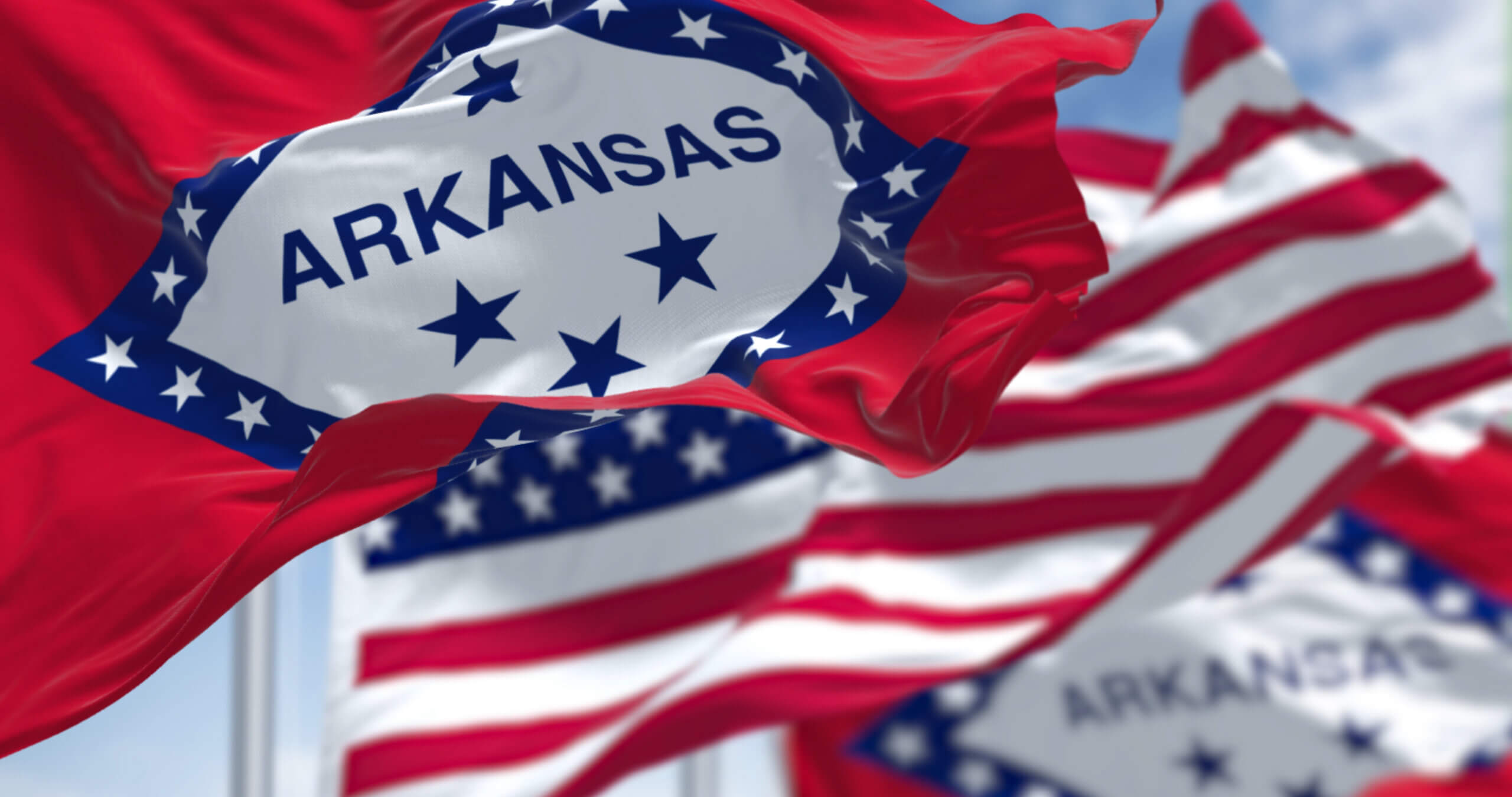What this is: Charitable nonprofits frequently think they need to register to solicit donations in all 50 states. We’ve got some good news for you: Fortunately, not all states require this.
What this means: The number of states that do require charitable solicitation registration varies in some circumstances, usually depending on the type of organization and sometimes you’ll find conflicting information when searching for the exact states where this is required. Let’s clarify which states require charitable solicitation registration for most charities, along with a few notable exceptions. Be sure to reference our map to see charitable solicitation requirements by state.
States That Require Charitable Solicitation Registration and Renewal
Currently, 36 states and Washington, DC broadly require charitable solicitation registration and renewal, unless a specific exemption applies. Exemptions vary greatly in each state, but most exempt religious organizations, like churches and synagogues, and many exempt hospitals and educational institutions (e.g. colleges and universities). However, there are frequently exceptions to the exemptions and thus a careful reading of each state’s requirements is needed.

Which States Do Not Require Nonprofits to Register?
While many states in the US require charitable solicitation registration for nonprofits, there are 10 states where this registration is not required unless specific conditions apply, which include:
- Nebraska
- South Dakota
- Utah
- Vermont
- Wyoming
Would you like to read more about building a foundation for your mission? Start with our Nonprofit Services Resource Center.
States With Limited Registration Requirements
There are a few states that only require charitable solicitation registration if a nonprofit is engaged in specific activities or seeks assistance from professional fundraisers. For example, Texas has limited registration requirements that are only applicable to law enforcement, public safety and veterans organizations. Arizona requires charitable veterans organizations to register if they are soliciting money or other support in the state. Louisiana only requires registration if a charity engages paid, professional solicitors to fundraise in their state, while Missouri exempts 501(c)(3), 501(c)(7) and 501(c)(8) organizations, upon application.
Charitable Registration is NOT Qualification to Do Business
Keep in mind that registering to solicit in a state is not the same as filing for a business license or qualifying to transact business in a state. With few exceptions, this is not required when a charity’s only nexus or connection with a state is fundraising via phone, email, direct mail or online.
The Takeaway
To sum it up as neatly as possible, if a 501(c)(3) charity soliciting nationwide is not a law enforcement, public safety or veterans organization, does not use the services of a professional solicitor and is not otherwise in an exempt category, that nonprofit would be required to register in 36 states and DC and file a one-time exemption in Missouri.
Not sure how to handle charitable solicitation registration in those 36 states? The good news is that you don’t have to go it alone.
Other Reads You Might Enjoy
Does a nonprofit require a registered agent in every state where it’s registered for charitable solicitation?
Fortunately, most states do not require a registered agent in order for a nonprofit to solicit donations. In those states where a registered agent is required for charities, don’t confuse it with the statutory requirements for registered agent for business entities. There are separate and distinct registered agent obligations for nonprofits. For more, visit our article, Top 10 Charitable Solicitation Registration FAQs From Nonprofits.
What is an example of a data protection regulation?
California Consumer Privacy Act (CCPA): The CCPA is a California state law that provides California residents with specific rights regarding their personal information, including the right to know what personal information businesses collect about them, request deletion of that information and opt out of the sale of their data. To read more on this topic, head on over to Nonprofit CRMs: How to Navigate Data Privacy and Compliance.
Why is using the Unified Registration Statement (URS) in Georgia advised against?
Georgia requires several additional state forms to be filed with the URS, such that it doesn’t make sense to use the URS. Also, Georgia is notorious for rejecting URS filings repeatedly and holds filers of this form to a very high standard. Detailed and precise answers are required for all of the questions on the URS when filing in Georgia. This is not the case in most states, where a minimal amount of information will be accepted when answering the questions on the URS. If you’d like to learn more on this topic, read our article, Why New Charitable Registration Filers Should Not Blindly Use the URS.
This content is provided for informational purposes only and should not be considered, or relied upon, as legal advice.
Leave Us A Comment
Did you find this article useful? We'd love to hear your thoughts. Join the conversation by leaving a comment or question below.




We are located in California. The only “fundraising” we ever do is through grant submissions to foundations that may be in California or any of the other 49 states. We never solicit the general public in California or any other state. Must we make a Charitable Solicitation Registration for every state?
Unless your organization qualifies for an exemption, you’d need to register to solicit in California, and the same is true in most states where you are applying for a grant. The definition of “solicitation” is broadly defined in most state charitable solicitation acts, such that an application for a grant is considered a form of solicitation (see California Article 1.3, Section 17510.2). Of course there are exceptions and exemptions (e.g. HI, MD & VA), where charitable registration is not required if your sole solicitation is for grants from corporations or tax-exempt organizations. Also, at least nine states have no charitable registration requirements (DE, ID, IN, IA, NE, MT, SD, VT & WY), and a few others exempt most charities (AZ, MO & TX). However, in almost all other states, applying for a grant from a corporation, foundation, tax-exempt organization or other nongovernmental source, is a charitable solicitation. Note that applying for the grant triggers the registration requirement…you don’t have to actually receive the grant. For more details, contact me directly via email and also consider subscribing to Nonprofit Fundraising Registration: Nolo’s 50-State Digital Guide (https://store.nolo.com/products/nonprofit-fundraising-registration.html/). Full disclosure: I am the author of the above Digital Guide. I am not an attorney and none of above response should be relied upon as legal advice.
Hi Philip, Thank you for your note! We can certainly help you with your multi-state charitable registration questions and needs. A member of our Nonprofit Team will reach out to you shortly.
I need to get more information on a charity before I make a donation. I can’t seem to find them on the internet. It is The I need more information on this charity The information on NCSAR charity, before I make a donation
Hi Christine, To learn more about the charity you are interested in donating to, please visit https://www.charitynavigator.org/.
We are a 501 c3 in Montana so we have no registration requirements. Grants can come from all over. If we apply for a grant from an organization in a state that does require it, do we need to register in that state?
Thanks for your comment, Heather. In almost all states, applying for a grant from a corporation, foundation, government or other nongovernmental source, is a charitable solicitation, and therefore requires charitable registration in the state where the solicitation is directed. Your nonprofit should be registered before applying for such a grant, as it’s the application for a grant that triggers a registration requirement, not receiving the grant itself. There are a few notable exemptions in some states depending on whether a nonprofit solicits donations in addition to seeking grant funding. Some states exclude grants from the definition of a ‘charitable contribution’, and therefore additional exemptions might be applicable if an organization is mostly or entirely funded by grants. As you might suspect, there are exceptions to the exemptions, so the short answer is that most states require registration. Please feel free to reach out to our nonprofit team if you’d like assistance determining what filings may be required for your organization.
This article is very helpful, thank you. I wonder if there is any way to get comprehensive exemption from IRS or somewhere rather than register (or qualified for expemption) to each state where required.
Hi Sam, Thank you for your kind words, I’m happy to hear that the article is helpful. Unfortunately, there is no easy solution for obtaining exemptions from state charitable registration requirements. Each state handles exemptions differently, and the types of organizations that qualify vary by state. Furthermore, some states require a one-time filing for exemption, whereas others have an optional application or will respond to a letter seeking exemption. There is no uniform system for filing for an exemption in multiple states. I note that the use of the word “exemption” in this response is limited to charitable registrations, not income or sales tax exemptions as those are entirely separate subjects and each state handles tax exemptions differently. Since the IRS only handles federal tax exemptions, there is no option for obtaining any type of state exemption via the IRS, though several states will automatically recognize an organization as exempt from state income tax if the organization is exempt from federal income tax. I hope this answer is helpful to you. Thanks, Ron Barrett
I think to make registration easier for all non profits and to clarify online donations, there should be a system in place that once you register in your state you are automatically registered in all states and your federal and/or state form is put into a central/unified system for reporting to each state. Especially when we look at online giving–things start to get just a bit crazy and worrisome for small non profits. This would make it easy for all and even a small non profit would be willing to pay an extra annual fee to have this, instead of filing and registration and paying fees for various states. All our states need to ‘play well’ with each other to help non profits continue the good they do at the local level. WHEN will this happen? Is it in the making/consideration yet?
Deborah, Thanks, your comments make a lot of sense. There have been efforts to simplify the filing process for nationwide charitable registration/renewal filings, such as the Unified Registration Statement and the “Single Portal” (see https://www.cogencyglobal.com/blog/why-new-charitable-registration-filers-should-not-blindly-use-the-urs and https://www.cogencyglobal.com/blog/single-portal-multistate-charitable-registration-for-real-this-time). However, neither fully realized their potential. The URS seems to be waning in popularity, due to high rejection rates by the states and the preference of online filing, which will soon render the URS to the “charitable registration historical archives” . As for the Single Portal, it’s a great idea…a centralized online filing system that allows nonprofits to meet the registration/renewal requirements in multiple states. Unfortunately, there are currently only two states on the system (Connecticut and Georgia) and there have been many delays and failures to add additional states. A nationwide online filing system has been in the works for the better part of a decade…you’re 100% correct in thinking that the states must work together to get this done. Unfortunately, each state’s registration and renewal requirements, statutes, forms, online filing systems, etc. varies, and states have too much invested in the status quo. I do believe that the states will eventually collaborate on a single nationwide filing system, but only when it becomes technologically and financially easy will it become a reality. In the meantime, there are service companies, such as COGENCY GLOBAL (see https://www.cogencyglobal.com/blog/what-the-model-t-and-fundraising-registration-have-in-common-pros-and-cons-of-outsourcing-charitable-registration-and-renewal-filings) to assist nonprofits. Also, there are strategies to reduce the number of registrations a charity must file (see https://www.cogencyglobal.com/blog/strategies-to-limit-state-charitable-solicitation-registrations and https://www.cogencyglobal.com/blog/55-mph-and-state-fundraising-registration-black-and-white-letter-of-the-law-and-the-gray-world-we-live-in). Finally, please don’t make the mistake of over registering, due to online fundraising or a donate-now button (see https://www.cogencyglobal.com/blog/online-donate-now-buttons-and-state-charitable-registration). I hope this response is helpful to you. – Ron
Hi Jen, This is a great question, as state dollar-threshold exemptions from charitable registration are frequently misunderstood. A state dollar-threshold exemption is applicable to contributions from all sources and locations, so donations from multiple states count toward the exemption threshold. For example, the dollar-threshold exemption in Connecticut is $50,000, which means a charity qualifies for an exemption from registration in Connecticut, if total contributions from all states do not exceed $50,000. There are a couple of notable exceptions, for example in New York, the $25,000 exemption is state-specific, meaning that registration is not required until a charity receives in excess of $25,000 from New York donors. Also, there are circumstances where online contributions are only counted from specific states, if solicitation is confined to online fundraising (e,g, Colorado, Mississippi and Tennessee). In the near future, I’ll be posting a blog article that goes into more detail. I recommend that you sign up for our blog updates: https://www.cogencyglobal.com/updates/signup.
Could a non profit , charitable organization use direct mail to solicit donations? from CA, and other states?
Hello, what is defined as “solicitation”? More specifically, if our 501c3 organization (which I don’t believe falls into any of the exceptions/exemptions) has a website with the ability to make an online donation, does this require registration in the 37 states? Thank you!
Matt, Thanks for your questions, they are very good. The definition of “solicitation” varies by state, but most state laws follow the Model Act (Model Act Concerning the Solicitation of Funds for Charitable Purposes), but usually with some modifications. Below is how “solicitation” is defined in the Model Act: “Solicit” and “solicitation” mean the request directly or indirectly for money, credit, property, financial assistance, or other thing of any kind or value on the plea or representation that such money, credit, property, financial assistance, or other thing of any kind or value, or any portion thereof, will be used for a charitable purpose or benefit a charitable organization. Without limiting the scope of the foregoing, these words shall include the following methods of requesting or securing such money, credit, property, financial assistance or other thing of value: (1) Any oral or written request; (2) the making of any announcement to the press, over the radio or television or by telephone or telegraph concerning an appeal or campaign by or for any charitable organization or purpose; (3) the distribution, circulation, posting or publishing of any handbill, written advertisement or other publication which directly or by implication seeks to obtain public support; (4) the sale of, offer or attempt to sell, any advertisement, advertising space, book, card, tag, coupon, device, magazine, membership, merchandise, subscription, flower, ticket, candy, cookies or other tangible item in connection with which any appeal is made for any charitable organization or purpose, or where the name of any charitable organization is used or referred to in any such appeal as an inducement or reason for making any such sale, or when or where in connection with any such sale, any statement is made that the whole or any part of the proceeds from any such sale will be used for any charitable purpose or benefit any charitable organization. A solicitation shall be deemed to have taken place whether or not the person making the same receives any contribution. As for the registration requirements when an organization has a website with the ability to make an online donation, simply receiving a donation is not a “solicitation”. It’s the act of soliciting that triggers the need to register in most states. Florida is an exception, because they do require charitable registration when a charity has an interactive website that allows for online donations. Also, attention to The Charleston Principles should be given, especially in Colorado, Mississippi and Tennessee, and then in the states that abide by these Principles. To learn more, see my article STATE CHARITABLE REGISTRATION WHEN SOLICITING DONATIONS ONLINE (https://www.cogencyglobal.com/blog/which-states-require-charitable-solicitation-registration-for-nonprofits) Please note: the information in this response is provided for informational purposes only and should not be considered, or relied upon, as legal advice.
I would be interested in learning more and the services you offer. Thank you!
Hi Marty, thank you for reaching out! A member of our Nonprofit Team will get in touch with you shortly.
I could use some help from your Nonprofit Team, please.
Thank you for getting in touch with us. We will reach out to you shortly.